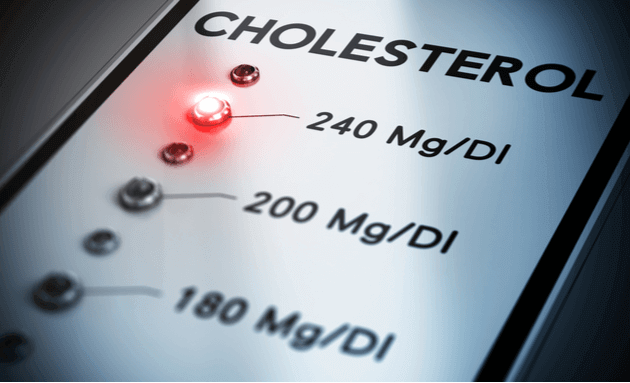Have High Cholesterol? Ask Your Doctor These 6 Questions.

Cholesterol is essential for the healthy functioning of the human body, and while it is obtained from animal sources like meat, it is also efficiently produced by the liver and serves multiple functions, including synthesizing Vitamin D, producing hormones, and aiding with digestion. Cholesterol can be of two types - Good and Bad cholesterol. Excess of bad cholesterol can cause serious cardiovascular problems.
If you have been diagnosed with high cholesterol, it is important to understand your risk factors, how you can reduce cholesterol and keep it under control. Here are a few questions you should consider asking your doctor.
1. What are the cholesterol levels and are mine borderline or dangerously high?

A cholesterol test or Lipid Profile measures four components in your blood - total cholesterol, good cholesterol (high-density lipoproteins or HDL), bad cholesterol (low-density lipoproteins or LDL), and triglycerides. As a healthy adult, you should look at the following levels:
- Total Cholesterol: Less than 200 milligrams per deciliter (mg/dL)
- LDL: Less than 100 mg/dL is considered healthy, though between 100 and 129 mg/dL may be acceptable
- HDL: This is the good cholesterol as it helps get rid of excess bad cholesterol in the body. A reading higher than 60 mg/dL is ideal. An HDL reading below 40 mg/dL can be an early sign of heart disease.
- Triglycerides: Less than 200 (mg/dL)
2. With my cholesterol levels, will medication be necessary?
Your doctor will advise you on lifestyle changes, related to exercise and diet. If your levels are high, medication will also be required. Make sure you ask the doctor about the duration of these medicines and if they have any side effects. A good thing to know here is if there are any vitamins or supplements that might improve the impact of these medications. Certain patients like to explore alternate treatments, which you can discuss with your doctor.
3. How often should I get my cholesterol levels checked?

Doctors recommend getting your cholesterol levels checked once every 5 years starting from 21 years of age. Individuals with risk factors such as a family history of heart disease, smoking, obesity, diabetes, and the like should consider going more often. Speak to your doctor to understand what is ideal for you.
4. What are my risk factors?
Certain elements such as a family history of high cholesterol, old age, obesity, and a sedentary lifestyle can significantly up your risk of high cholesterol. Diabetes can also increase your risk by increasing your bad cholesterol count and simultaneously reducing good cholesterol count.
For women, the drop in estrogen that comes with menopause may also increase the risk of high cholesterol. Check if you have certain risk factors in tandem with your doctor. Once identified, they can then be managed.
5. What are the lifestyle changes necessary to keep cholesterol under control?

It is possible to keep cholesterol under control by consuming a healthy diet and exercising regularly. To avoid high cholesterol, your diet should consist of foods that are high in healthy fats such as nuts, avocados, and fish, along with fibrous foods such as whole grains, apples, bananas, and beans. Foods that are high in bad cholesterol, like meats, are best avoided. Also, limit your salt intake.
Giving up smoking and drinking, and exercising regularly will help control your weight and keep your arteries healthy. Aim for at least 30 minutes of moderate activity every day. If you need professional help to give up smoking, check with your doctor for advice or reference.
6. What may happen if I fail to keep my cholesterol levels under control?
High cholesterol levels can be dangerous for the body as they cause plaque to accumulate on your arterial walls. Also known as atherosclerosis, this clogging of arteries can block blood flow within the body causing angina (chest pain), heart attacks, or strokes. Note that you won’t necessarily know that you have high cholesterol until you get a test done. High cholesterol displays no visible symptoms. Keeping a check on your cholesterol levels with the help of regular tests is advised.


